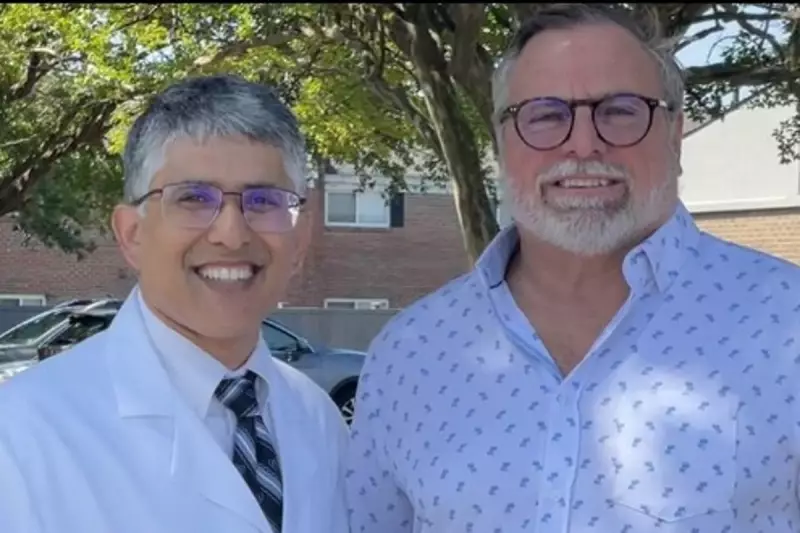
In what medical professionals are calling an extraordinary stroke of fortune, a Virginia man cheated death during a massive heart attack by making a split-second decision that ultimately saved his life.
John Joyce, 62, was driving near his home when he began experiencing severe chest pain and dizziness. Rather than pulling over, he made the calculated decision to drive directly to the nearest hospital - a choice that defies standard medical advice but proved to be his salvation.
The Perfect Storm of Coincidences
What unfolded next seems almost scripted for a medical drama. Upon arriving at the emergency department, Mr Joyce was immediately attended by Dr Sam DeLeon, a highly respected cardiologist who just happened to be on duty that evening.
In an astonishing twist of fate, Dr DeLeon recognised his patient immediately - he had treated Mr Joyce's father for a similar cardiac condition years earlier.
A Race Against Time
'This was one of the most critical cases I've seen in my career,' Dr DeLeon explained. 'John was experiencing what we call a 'widow-maker' heart attack - a complete blockage of the left anterior descending artery. Most people don't survive this.'
The medical team sprang into action, performing emergency angioplasty to clear the blockage and insert a stent. Throughout the procedure, Mr Joyce remained conscious and remarkably calm.
Defying Medical Odds
What makes this case particularly remarkable is how Mr Joyce managed to drive himself to safety while experiencing such a severe cardiac event. Most patients would lose consciousness or become incapacitated.
'I just knew I had to get to help,' Mr Joyce recalled. 'The pain was overwhelming, but some inner voice told me to keep going. I don't remember much of the drive, just focusing on reaching the hospital.'
A Message of Hope and Awareness
Medical professionals emphasise that while Mr Joyce's story had a miraculous outcome, it shouldn't serve as medical advice. The standard protocol remains calling emergency services immediately when heart attack symptoms appear.
However, his experience highlights the importance of recognising heart attack symptoms and taking immediate action. Common signs include:
- Chest pain or pressure
- Pain radiating to arms, neck or jaw
- Shortness of breath
- Nausea or dizziness
- Cold sweats
Mr Joyce has since made a full recovery and describes his second chance at life as 'a gift I'll never take for granted.' His story serves as both a medical marvel and a powerful reminder of the fragility of life.





